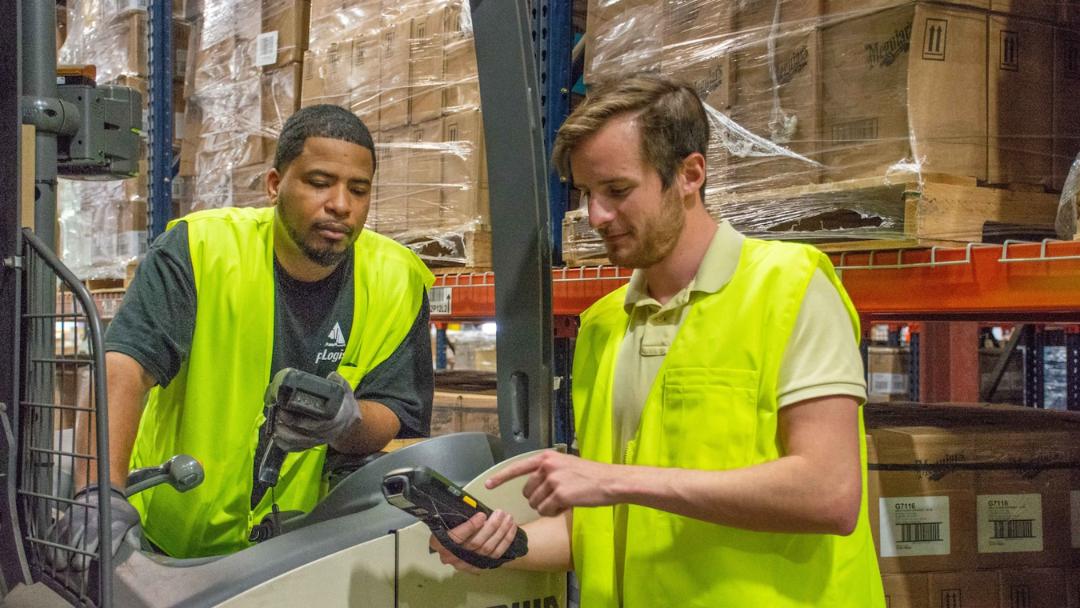Two years of pandemic hiring and training contact center agents have come and gone.
What have managers and supervisors learned about what works and what needs to be improved when it comes to training and retaining contact center agents?
Plenty!
We held another Contact Center Executive Forum Virtual Roundtable on January 27, 2022 with Dr. LuAna Boykins, the COO of GuideWell Connect, as our featured guest.
We asked her to discuss how contact center agent retention and attrition changed at Connect over the course of the pandemic to today.
Of course, as we all know, finding top talent was much harder than expected in 2021, as many people decided not to return to work or chose to move to higher-paying positions as they became available. So many people quit, it turned out, that pundits began calling this months’ long “quit palooza” the “Great Resignation,” a phenomenon that continues today. (Although at least one organizational expert believes it will “slow down” over the course of this year.)
GuideWell Connect provides customer engagement solutions for its clients that help them attract and retain their healthcare customers. And they do so with the help of contact center agents that offer solutions and answers to customers’ healthcare program questions and issues.
Moving contact agents from all in-house to fully remote to STAYING fully remote.
Like most companies providing contact center services, Connect went fully remote in Spring 2020. Yet unlike many contact centers, the company has kept its agents fully remote and has no plans to move them back to working in a contact center.
Adjusting not only to working remotely but TRAINING remotely.
2020 was primarily about training agents and adjusting to working remotely. While 2021 was more about fine-tuning that training so that those who could train or learn well in a remote environment could do so, while not forgetting that many others (in both trainees and trainers) don’t learn/train well remotely.
Most companies hold healthcare open enrollment in the fall, so once Connect completed its 2020 peak season, it realized it needed to “invest” its time and budget in the “learning and development strategy,” Dr. Boykins said. “It had to happen before we could even get to the challenge of hiring” for the 2021 peak season.
Because a much bigger picture had emerged:
Training was a HUGE factor in agent retention.
No company wants to do well in recruitment to see it be pretty much for naught if talent churn is steep.
Therefore, Dr. Boykins said, Connect needed to revamp its entire training process to focus more on adult learning. (And this would be even after it already had done so when its contact centers went fully remote.)
In a nutshell: recruiting and training contact center agents are the first two steps in retaining them.
Connect’s response and actions (and potential strategies for you):
Changes in agent training
The company “amped up” its training modules, mainly so that trainees didn’t need to sit for hours during training with only short breaks. Instead, the company changed its training so that agent training would be broken into shorter chunks to allow for a mental/physical break before returning to the next learning section.
And repeat.
Connect found that most people learned best when learning this way: “in chunks.”
Many professional training creators would say that fact is a no brainer, yet it went further than that for Connect:
“We all noticed that when people returned to the training—after they’d had a chance to think about it—it was amazing the questions we’d never heard before when we trained in person with longer sessions. This allowed us to tweak the training materials and presentation for future classes,” Dr. Boykins said.
- The “Great Resignation” made retention difficult, no matter what Connect did.
“We were doing OK until the Great Resignation hit. The people who typically would return each (high) season weren’t interested. This isn’t unlike what any other business was experiencing, and this was a new frontier,” Dr. Boykins said.
Connect doubles the number of team members during peak season compared to other year periods.
That has proven to be—and probably continue to have its difficulties in a changing employment market.
The company also saw higher attrition due to agents who usually would have worked just during high season receiving full-time, permanent positions.
“And good for them!” Dr. Boykins said.
- Moving to a national recruiting effort. Leveraging remote opportunities to expand Connects reach for agents.
The company had always recruited agents who lived close enough to commute to an in-house contact center. With the pandemic and the need for over 1,000 agents for peak season, coupled with the extreme difficulty that 2021 (and even 2020) had brought to the company’s ability to find great talent, it meant that the company moved to recruit nationally, like many contact centers who moved remotely.
What’s more, Connect discovered when recruiting for the peak season in 2020 that it would “lose people due to the lag between hiring and training. “By the time we hired them well in advance of peak season, we’d lose them to other opportunities because the time lag was too long,” Dr. Boykins said.
- Retention bonuses work when aligned to shared goals.
Connect offered agents a retention bonus if they stayed for the entirety of the high season.
“Many people stayed until they got their bonus,” Dr. Boykins said, “and then left the day after. And that was fine. It’s exactly what we expected to happen.”
The retention bonus worked so well that Dr. Boykins said the company plans to use it year-round, not just for peak season.
- Don’t be unhappy when agents hired for peak season find full-time jobs elsewhere.
Boykins mentions that her team is happy when this happens because Connect often can’t bring on great temporary talent because of the differences in peak and normal staffing. The idea is to celebrate team members’ successes, no matter what happens, as this gives departing contractors a good feeling about their assignment. This could come in handy if the agent is ever again searching for contract work.
- Many great agents can become great trainers, but not all.
Connect often takes high-performing and enthusiastic agents and makes them trainers themselves. Most enjoy the work, but some don’t.
If the new trainer isn’t happy or performing well, Connect will move them back to their former position, often to the team member’s relief: most people know when they’re not performing well and become stressed and unhappy at work.
- Referral bonuses DID NOT work.
This was something of a big surprise. Connect offered referral bonuses to both contract and payroll talent.
But “people just weren’t referring people,” Dr. Boykins said. “I don’t know why. It was interesting.”
Referral bonuses are something we must determine if using is right for our business.
- Connect doesn’t have a rule regarding how long contact agents are on the phone with a customer or prospect.
“It’s far more important that we care about the person on the other end of the phone,” Dr. Boykins said. “If that means a ‘long’ conversation with the agent, that’s fine. I want them to feel connected and that they’ve made the right health insurance decision for themselves and their family. That’s all I care about.”
The ultimate result?
“2021’s peak season was the best season selling-wise in the history of our company!”
Learn more about how Employbridge can help you staff your contact center—remote, hybrid, or at your business’ site—during peak season or all year long.


